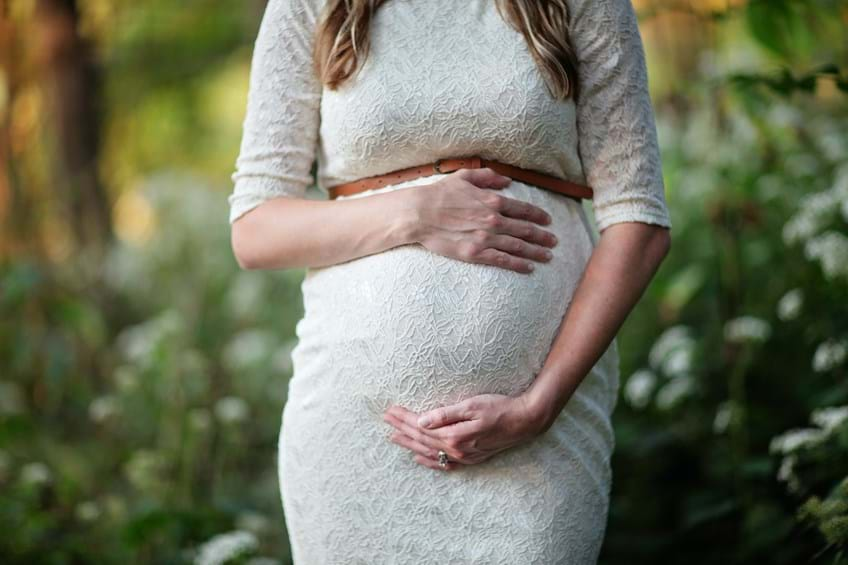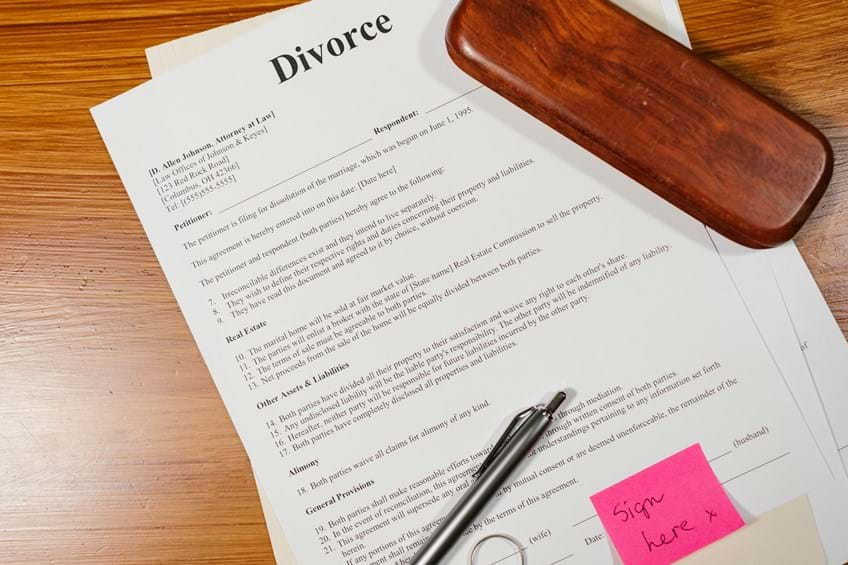Family Law

A Summary of Maternity Leave
Introduction
The most common area for enquiries on employment law from our clients relates to maternity leave. I have written this overview to assist our clients in having a general understanding of the law on maternity leave.
Types of Maternity Leave
There are 3 types of maternity leave as follows:-
i) Ordinary Maternity Leave (“OML”)
ii) Additional Maternity Leave (“AML”)
iii) Compulsory Maternity Leave (“CML”).
OML
This lasts up to 26 weeks or until the end of CML, if later. OML can start at any time from 11 weeks before the week the baby is due. An employee who is eligible for OML is also entitled to CML.
AML
AML lasts up to 26 weeks. AML starts on the day after the last day of OML. Entitlement to AML depends on the employee’s expected week of childbirth.
CML
In addition to OML and AML, there is also CML which is required essentially as a health and safety measure. An employer must not permit an employee who is entitled to OML to work during the period of 2 weeks (extended to 4 weeks for some factory/workshop workers) commencing with the day on which childbirth occurs. An employer who does so is guilty of an offence and is liable on summary conviction to a fine.
Entitlement
All employees are entitled to both OML and AML, together totalling 52 weeks’ leave, provided they satisfy certain notice requirements.
A woman must still be employed by the relevant employer at the point when she commences statutory maternity leave from that employment; indeed if she were not employed at that point there would be no employment from which to take leave. This contrasts with the position in relation to entitlement to statutory maternity pay (“SMP”). Once an employee qualifies to receive SMP from a given employer, she will not lose that entitlement even if she ceases to be employed by it (and even if that employment ceases before the period during which she is to receive SMP payments commences).
Notice
In order to take maternity leave an employee has to give notice to her employer on or before the 15th week before the week that she expects her baby to be born. The notice must state that she is pregnant, the week that her baby is due and the week that she plans to start her OML.
If the employer asks for proof of pregnancy, then she has to provide a medical certificate.
Within 28 days of receiving notice that an employee intends to take maternity leave, the employer must write back informing her of her expected date of return from either OML or from AML if she is entitled to it.
If the employer fails to provide this information then the employee may be entitled to return to work early without giving the requisite notice and be protected from detriment for failing to return to work on what otherwise would be her return date.
Starting maternity leave
OML can start at any time from 11 weeks before the week the baby is due.
The employee needs to give notice of when she wants to start the leave, but she can change her mind as long as she gives at least 28 days’ notice of the change. In rare circumstances, where it is not reasonably practicable to give 28 days’ notice, she may be able to change her mind even later than this but should give notice as soon as it is reasonably practicable to do so.
If the baby is born early, OML starts automatically on the date of the birth.
If the employee is entitled to AML, it starts on the day after the last day of the employee’s OML.
Premature babies and stillbirth
If the baby is born early then the employee does not have to give notice of her intended leave date but should inform her employer as soon as possible after the birth that she is starting maternity leave. If she loses the baby after 24 or more weeks of pregnancy, or if the baby is stillborn, she is still entitled to maternity leave. There is no need to notify her employer of the intended leave date, but she should tell her employer as soon as possible after the baby is lost that she is starting maternity leave.
Illness in late pregnancy
If the employee is absent from work in the last 4 weeks before her baby is due for reasons related to the pregnancy or childbirth, she has to inform her employer that the absence is pregnancy-related. This is important because if she does go off sick in this period her maternity leave starts automatically from the date of her first absence. If her absence is not related to pregnancy or childbirth then her maternity leave will not start automatically.
Rights during OML and AML
An employee who takes OML or AML is entitled to the benefit of all the terms and conditions of employment that would have applied had she not been absent, with the exception of wages or salary. The obligations during maternity leave apply both ways so that employees can continue to have contractual obligations to their employer during maternity leave such as trust and confidence and fidelity.
The employer must therefore continue to provide all contractual and discretionary benefits during maternity leave but need not pay anything which constitutes wages or salary which would include overtime, shift pay or attendance allowance.
For example an employee would therefore be entitled to continue to receive (provided she was entitled to them before she want on maternity leave) things such as life insurance, permanent health insurance, medical cover and gym membership.
Employment terms and conditions with no personal benefit
When an employer normally provides an asset or facility to an employee from which that employee derives no personal benefit, it is probably the case the employer is not required to continue to provide it during maternity leave. For example in respect of the provision of a company vehicle which is solely for work use or the provision of a mobile phone which may only be used to make or receive work calls.
Where the employee is entitled to some personal use of the assets/ facility, the employee clearly derives a benefit from it and hence the employer is required to continue to provide it throughout maternity leave. For example if a company car or mobile telephone can be used partly or even exclusively for non-work activities then the employee must continue to be given the benefit during OML and AML.
Childcare vouchers
The issue as to whether or not an employer must during maternity leave continue to provide childcare vouchers is a tricky subject. This is because it is debatable in most circumstances as to whether childcare vouchers are a personal benefit (which should be continued during maternity leave) or part of wages (which do not have to be continued during maternity leave).
Pension contributions and certain other benefits during maternity leave
A maternity equality rule is implied into all occupational pension schemes (see definition below). This means that any period when an employee is on maternity leave should be treated as a time when she is not, in particular in relation to any rule of an occupational pension scheme which can be applied in respect of scheme membership, accrual of scheme rights and determination of benefits.
Similar provisions apply in relation to any discretion under scheme rules which can be exercised in a way that treats a period of maternity leave differently from time when a woman is not on maternity leave.
During any period of maternity leave the employer must continue to make its usual contributions to the pension scheme, the employer’s pension contributions must be calculated on the basis of the employee’s normal pay (i.e. the pay she would be receiving if she was at work), the employee’s pension contributions must be calculated on the basis of the pay she is actually receiving (i.e. SMP) and the employee’s service must count as pensionable service for a final salary (defined benefit) pension scheme.
A woman who is on maternity leave will be entitled to continuing membership of the scheme throughout the period of maternity leave whether or not she is paid.
These provisions do not apply to the accrual of scheme rights whilst the employee is on AML and is not being paid by her employer.
The reference to “paid by her employer” includes any time when the employee is receiving statutory maternity pay (“SMP”) or other pay (e.g. contractual maternity pay, including payment for “keeping in touch” days). For SMP this will usually be a period of up to 39 weeks.
The definition of occupational pension scheme under the Equality Act 2010 is relatively wide and probably means that the employer must also continue to provide life insurance, health insurance, medical cover and permanent health insurance during paid maternity leave.
Holiday entitlement during maternity leave
As with other terms and conditions employees will continue to accrue holiday entitlement during OML and AML.
Work during maternity leave
Employees are entitled (but not obliged) to work up to 10 days (“keeping in touch days”) during their maternity leave without bringing their maternity leave to an end.
Bonus entitlement and maternity leave
Complex statutory provisions from the Equality Act 2010 apply to protect the position of pregnant women and those on, or who have taken, maternity leave, in relation to their contractual pay including bonuses. Protection for such workers in respect of non-contractual, discretionary benefits (such as truly discretionary bonus scheme) is provided by the prohibited conduct provisions of the Equality Act 2010.
SMP
In order to quality for SMP the woman needs to be an employee as defined and satisfy the following:-
i) she must have been employed for a continuous period of 26 weeks ending with the week immediately preceding the 14th week before the expected week of confinement/childbirth (“EWC”);
ii) she must have average earnings for the period of 8 weeks ending with the week immediately preceding the 14th week before EWC of not less than the lower earnings limit in force (currently £112 per week with effect from the 6th April 2015;
iii) she must have become pregnant and have reached, or given birth before reaching the commencement of the 11th week before EWC
iv) she must give the requisite notice to the employer of when she expects his liability to pay her SMP to start; and
v) be off work.
In certain situations these conditions do not need to be satisfied for a right SMP to arise, such as the following examples:-
i) when an employee has been employed for at least 8 weeks and the employer dismisses her solely or mainly to avoid liability for SMP.
ii) when an employee is confined (i.e. gives birth) more than 14 weeks before EWC, and would have otherwise qualified.
It follows from this that an employee does not need to be employed by the employer from whom she receives SMP at the point when she begins to receive that pay (or indeed after that), provided she was working as an employee of the employer for the continuous 26 week period immediately preceding the 14th week before EWC (and was earning at or above the required average rate), that employer will be fixed from then onwards with a liability to pay her SMP, whether or not she remains in employment with it subsequently. Once a woman qualifies for SMP against a particular employer in this way, she will retain the entitlement to be paid SMP by that employer throughout her period of entitlement even if she ceases to be employed by that employer (and it does not matter whether she ceases to be employed by that employer before the period of entitlement starts, or at some point during the period of entitlement). This contrasts with entitlement to take statutory maternity leave as the woman must at the point that she takes maternity leave still be an employee of the employer from whom she is taking that leave.
However if a woman starts, during her period of SMP entitlement, to work for an employer (“Employer B”) other than the employer (“Employer A”) that is liable to pay her SMP, then Employer A will not be liable to pay SMP from then onwards for any of the remainder of her period of SMP entitlement (even if she subsequently stops working for Employer B before the original period of SMP entitlement has ended).
SMP – period of entitlement
This is for 39 continuous weeks. An employee is not allowed to any payment after this SMP period unless she is entitled to any contractual maternity pay.
SMP – rates and payment
During the first 6 weeks of maternity pay, the rate is 90% of the employee’s normal weekly earnings during the 8 weeks immediately before the 14th week before EWC (“the Higher Rate”). Thereafter another rate is payable which is the lower of the Higher Rate and the set rate currently of £139.58 per week (with effect from the 5th April 2015).
SMP – recoupment
SMP is generally paid by the employer but can mostly be recouped by making deductions from the employer’s National Insurance contributions.
Maternity Allowance
Some people who do not qualify for SMP will quality for maternity allowance (“MA”). For example the self employed and people with insufficient qualifying service to get SMP.
Currently MA is £139.58 (with effect from the 6th April 2015) or (if lower) 90% of the employee’s normal weekly earnings, and is payable for up to 39 weeks. To qualify for MA an employee must:-
i) have become pregnant and reach, or been confined before reaching, the commencement of the 11th week before the EWC;
ii) have been engaged in employment as an employed or self employed earner for any fraction of the week, in at least 26 of the 66 weeks immediately preceding her EWC.
iii) have average weekly earnings which are not less than the maternity allowance threshold for the relevant tax year (currently £30) and
iv) not be entitled to SMP for the same week in respect of the same pregnancy.
Employees are disqualified from MA if they work as an employed or self employed earner for more than 10 days in the maternity allowance period.
If you need any further advice or guidance on maternity leave, whether as an employer or an employee, then please contact Gemma Mayer on 01775 722261 or email gemma.mayer@maplessolicitors.com or Daven Naghen on 01775 722261 or email daven.naghen@maplessolicitors.com or visit our offices or arrange an appointment at 23 New Road Spalding Lincolnshire PE11 1DH .

Are Pre Nuptial Agreements Worth It?
It was hoped that the long-awaited decision in the case of Radmacher v Granatino in October 2010 would answer the above question. The case established the following point of principle:
‘The Court should give effect to a nuptial agreement freely entered into by each party with a full appreciation of its implications unless in the circumstances prevailing it would not be fair to hold the parties to their agreement.’
The answer appears to be therefore ‘probably!’
Couples planning to marry have long sought to agree who should have what in the event of the relationship going wrong, but the Divorce courts in England have the discretion to do whatever is considered reasonable in all the circumstances of the case when a couple divorce . Nevertheless the Courts have increasingly been willing to look at any pre-nuptial agreement entered into by the parties when considering all the circumstances of the case but the weight (if any) attached to the terms of the agreement differs from case to case. There is no law in England which states that couples are absolutely bound by any pre-nuptial agreement they entered into before they married.
However as society changes and with Divorce becoming sadly ever-more commonplace, many believe that couples ought to have the right to enter into a contract with their partner to sensibly work out the terms of any divorce settlement in the unfortunate event of the relationship just not working out. It is felt therefore that any move in the law to make pre-nuptial agreements absolutely enforceable in the event of Divorce would merely reflect the reality of modern-day living.
The fact is that despite making vows to stay together ‘til death us do part’ it makes sense to attempt to lay down an agreement for the division of assets on divorce in the hope that this will serve to cut down the bitterness and trauma of a marriage breakdown.
The case of Radmacher does not reflect a change in the law but it does provide the clearest indication from the English Courts yet that in the right circumstances a nuptial agreement in the right circumstances will be respected and upheld by the courts. However until parliament introduces legislation to firmly lay down the principles under which a nuptial agreement will be fully recognised by the courts then couples cannot be certain that the terms of their agreement will be absolutely binding.
However does that mean that couple should ignore the idea of entering into such an agreement? Absolutely not. Pre-nuptial agreements are likely to be respected by the divorce court particularly in short marriage and where the contribution in money/property of both parties to the marriage is clearly defined in the agreement. Also both parties ought to take independent legal advice before entering into the agreement
For more details or assistance with pre-nuptial agreements please contact Anita Toal 01775 722261 or email her on anita.toal@maplessolicitors.com

Assets on divorce - Can I keep the Family Home?
The Family Home
Each and every case is different and it is important to bear in mind that whether one party can retain the family home depends on the circumstances of the case; the extent of other assets in the marriage; the needs of any children and a variety of other factors.
There are a number of options as to what can happen to the family home and here are a few examples
- The home can be sold and the proceeds of the sale split between the parties, either equally or otherwise depending on the parties’ relative earning capacity;
- One party can buy the other out of the home by paying them a lump sum and having the house transferred into their sole name. This usually works on the basis that the party keeping the house takes on the existing mortgage and the other party is removed from it;
- One party can remain living in the home until any children turn 18, at which point the property is sold and the proceeds are split either equally or otherwise depending on the parties’ respective earning capacity. Where there are children involved this option can allow them to stay in their home without too much disruption;
- Where there is more than one property owned by the parties, the properties themselves may be transferred to either party so that each of them has a property to live in. One party would transfer one house to the other and be released from any mortgage on it and the other party would do the same with the second house; or
- The home can be transferred to one party subject to a ‘charge back’ securing an interest for the other party to receive a share when, for instance the youngest child of the family reaches the age of 18.
Pension - Can I get a share of my spouse’s pension?
There are many ways that pensions can be dealt with, but again there are some more common solutions:
- Pensions may be made subject to a Pension Sharing Order where a percentage of one party’s fund value is transferred to the other and invested in a pension in the other’s name;
- A pension’s value can also be offset meaning that one party retains more pension provision but the other receives a greater share of the family home and/or other assets; or
- Pensions can be subject to a pension attachment order whereby the other party is linked to the pension holder’s pension and retains an interest in it.
The assets of the marriage are divided up taking into account a variety of factors including the income and earning capacity of the parties and their respective needs.
Our expert Family team can advise you on any issue regarding finances on either divorce or separation, and what you might expect to be able to receive from a settlement or from an Order of the Court. If you would like further advice, please call 01775 722261 to arrange a meeting, or email anita.toal@maplessolicitors.com.

Child Maintenance Update
The Department for Work and Pensions said on the 23.03.10 that money paid to parents to support their children will no longer be taken into account when calculating benefit entitlement.
From April, income from child support will be completely disregarded from benefit calculations unless it increases their savings to over £6,000.00.
For further advice on child support or related family matters please contact a member of our family team, Anita Toal at anita.toal@maplessolicitors.com or on 01775 722261.

Protecting the Family Business on Divorce
One of the first considerations of any potential divorcee after worrying about the impact of the divorce on any children will be, no doubt, to ensure that after the divorce they are left with sufficient income to live on, a property to live in and sufficient capital assets to provide “nest egg” provision. Sadly, in a lot of marriages this is not always possible. Of particular concern to business owners will be the need to protect the business especially if that business is regarded as a “family business” which has traditionally been the main source of the family’s income.
Generally a Court will not seek to interfere with a long established family business. Quite often in a family business the case is that one party will hold shares with, for instance, siblings and parents. If at all possible the Court will do everything it can to preserve the business but will compensate the other party to the marriage by awarding a greater share of the other assets thus keeping the family business and the shareholdings in tact. It tends to be accepted that trying to put a price on a minority interest in a private limited family Company in particular is very difficult if not impossible. A minority interest will usually be heavily discounted. A formal forensic report from a suitably qualified accountant can be helpful and sometimes essential depending on the potential value of the Company but with smaller family companies such a report may not be considered worthwhile.
It is important for parties to a marriage to understand that purchasing or registering assets in one party’s sole name will not necessarily “ring fence” those assets against claims from a spouse in the event of divorce. The Divorce Court generally has an absolute discretion as to how to divide up the assets of the marriage (including business assets) as it sees fit taking into account a variety of factors under the Matrimonial Causes Act 1973 (as amended). Those factors include the income and earning capacity of the parties, the age of any children and the contribution made to the marriage in money or monies’ worth. It is not correct to assume therefore that there will be a 50% division of the assets. In some marriages virtually the entire wealth of the marriage may have been contributed by one party, especially for instance, where the family business is an inherited farming business passed down the generations.
Although reported cases do provide some guidance as to the approaches adopted by the Court it is important for each case to be considered on its own facts and merits.
The question is, can anything be done to protect assets and in particular the family business?
There are a variety of things that can be done in an attempt to protect the family business or assets provided exclusively by one party to the marriage from a source entirely external to the marriage.
One possible preventative measure is to enter into a pre-nuptial or post-nuptial agreement setting out how assets will be divided on any future separation or divorce. Please see our website for further details on pre and post- nuptial agreements. Briefly however the position is that in English law a Divorce Court does not have to follow the terms of any pre or post nuptial agreement. The Courts are becoming increasingly sympathetic however to following the terms of such agreements so long as certain conditions apply.
One other possible way of attempting to protect the family assets is by the parties entering into a Declaration of Trust relating to specific property setting out the shares in which the property is owned.
The parties should also make a Will and regularly update or review the Will.
Generally assets acquired from a source entirely external from the marriage ought, wherever possible, to be kept entirely separate and not “submerged” with joint matrimonial property.
Certain trusts can be entered into in an attempt to protect family wealth. Pension and Life Insurance assets ought to be protected by making appropriate nominations.
The Memorandum and Articles of Association of any family Company ought to be reviewed to ensure that shares are protected wherever possible.
Whatever measures are taken however it is important to keep in mind what is said above about the absolute discretion of the Court to divide up the assets of the marriage in the event of a divorce as it sees fit. Whatever is done it does not carry any guarantees of protection in the event of a divorce but it is always important to do whatever can be done in an attempt to protect family assets and in particular the family business.
Should you require any further information regarding divorce then please contact Anita Toal on 01775 722261 or email anita.toal@maplessolicitors.com
If you would like advice regarding Trusts/Wills please contact Jane Mawer on 01775 72261 or email jane.mawer@maplessolicitors.com or Faye Blair 01775 722261 or email faye.blair@maplessolicitors.com or Jamie Dobbs on 01775 722261 or email jamie.dobbs@maplessolicitors.com
For any advice on Company Law contact Dav Naghen on 01775 722261 or email daven.naghen@maplessolicitors.com

New Law on Cohabitants Property Rights
The long awaited Judgment in the case of Jones -v- Kernott was handed down yesterday (9th November 2011) by the Supreme Court. The law concerns cohabitants’ property rights and could have far a reaching effect with regard to couples intending to cohabit.
The case of Jones -v- Kernott concerned a couples’ entitlement to a property which they purchased in 1985. The couple separated in 1993 with Miss Jones continuing to live with the couples’ two children at the property. Miss Jones continued to pay the mortgage.
The Court of Appeal had previously stated that since the Deeds indicated the couple owned the property on a 50/50 basis then that is exactly how the property should be held and divided. However, the Supreme Court has now overturned the Court of Appeal decision and have held that Mr Kernott should only have a 10% share of the property.
The Supreme Court came to its decision on the basis that 10% was seen as a “fair” share of the property for Mr Kernott in all the circumstances of the case.
To date, the law relating to the division of property has always been very different depending on whether a couple marry or whether they simply choose to cohabit. If a couple marry and then subsequently divorce the Court has an absolute discretion under the Matrimonial Causes Act 1973 (as amended) as to how to divide up the property and indeed all the assets of the marriage and the parties. The Court in the course of the divorce, divides the assets of the marriage on the basis of what is considered reasonable in all the circumstances of the case with the welfare of any minor children of the family being paramount.
By contrast, the general rule to date with cohabiting couples has been that any property held in the sole name of either party remains with that party and any jointly owned property is split 50/50. A cohabitee to date has always had an “uphill struggle” to prove that he or she should have a greater share of the property where the Deeds say the property is held jointly and has been left to argue his/her case under the very complicated law relating to trusts. A cohabitant seeking to claim a greater percentage of a jointly owned property usually has to prove the existence of some kind of constructive, implied or resulting trust to be successful. To date, it has not been open to a cohabitant to simply suggest that splitting the property 50/50 would be “unfair”. The case of Jones -v- Kernott however suggests that it might be possible now to argue that the property of cohabiting couples should be divided on the basis of what is fair in much the same way as the property of married couples is divided under the Matrimonial Causes Act in the course of divorce.
Experts in family law however do feel that in the absence of very clear legislation from Parliament and notwithstanding the decision in Jones -v- Kernott, it is still important that couples record their intentions formally and in writing and review those arrangements in the light of any subsequent changes in their circumstances to avoid costly and expensive litigation should they choose to separate in the future.
If you require any further information regarding this or any other area of family law then please contact our family team:-
Anita Toal, telephone 01775 722261 or email anita.toal@maplessolicitors.com



